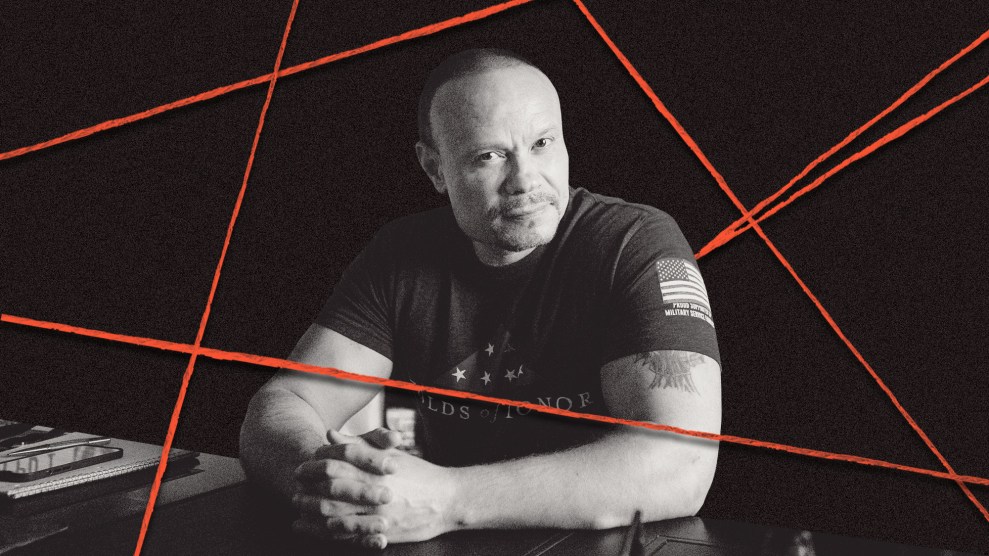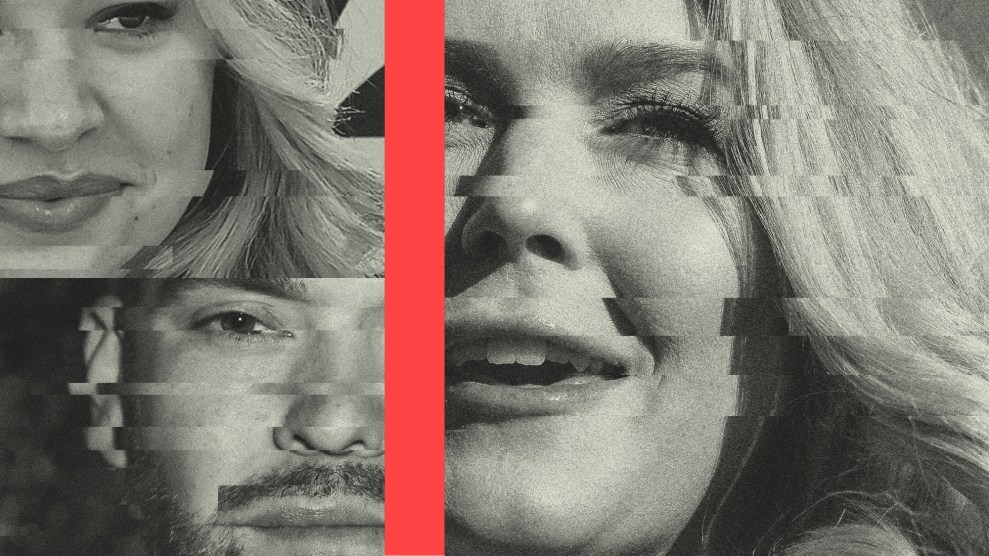At the age of 16, Femi Kuti’s life took a hard left. The compound run by his father—the world-famous Nigerian musician and antiauthoritarian rebel Fela Kuti—was stormed by Nigerian soldiers in 1981, leaving his father severely wounded and his grandmother dead.
Two decades later, the general who led the assault, Olusegun Obasanjo, has become the democratically elected president of Nigeria. Fela succumbed to AIDS in 1997, but Femi has stepped into his father’s shoes—both politically and musically. In addition to playing Afrobeat that is every bit as funky and fiery as his father’s, Femi has become a strident critic of Obasanjo’s regime, which has been praised by Western leaders but vilified by many Nigerians for having done little to curb corruption.
Recently, Femi also reopened his father’s nightclub, The Shrine, and plans to revive its rebellious musical, cultural, and political spirit. He spoke to Mother Jones in New York City, where he was putting the finishing touches on his new album, Fight to Win.
Mother Jones: Why was your father’s nightclub, the old Shrine, important?
Femi Kuti: It was a place where everybody got to listen to my father talk. It kept the people alive to know that there was somebody there for them, opposing [the government] and understanding their suffering.
MJ: And you wanted to continue the tradition?
FK: Yes, because my father never had his own place [for the club]. Everywhere he moved, they had a reason to kick him out. That was the saddest part of his life. So now there is a place, and as long as this life exists, it will be there.
MJ: Tell me about the work you’ve been doing on AIDS.
FK: The best work I’m doing now is putting a track on the album about AIDS. I am going to fight the African governments on the issue. They are handling the problem very badly.
MJ: How so?
FK: President Bush gives Obasanjo millions to give the AIDS drugs to the people. But I know it is only going to the rich. It will never get down to the grassroots level—nothing gets to the grassroots level.
Why are Europe and America supporting governments that they know are not building roads or putting hospitals in Africa? That is the issue. America is taking oil. And they are dealing with corrupt leaders. Their intelligence tells them that these leaders are corrupt. So why are they dealing with them?
MJ: What are your views on the Obasanjo government?
FK: Obasanjo has left the country 58 times since he resumed power. How can you be leading a country which has so many problems and you are traveling? I am the one who is supposed to be traveling, to win more support for Africa and take African music to another level. And how can he be so fat? Any African leader who is fat should be banned from entering America! [Laughs.]
MJ: The animosity appears to be mutual.
FK: When Clinton came to Nigeria last year, they did not invite me to play. They invited all the nonpolitical artists to play for Clinton. They knew if I was there I would say it straight: “President Clinton, I think …”
Ah, but they played my father’s tune. I was so mad! Obasanjo broke into my father’s house and beat the shit out of my father, and there he is dancing to my father’s music with his fat stomach.
MJ: Obasanjo’s government banned your hit single “Beng Beng Beng.”
FK: It was a case of victimization. They banned the sexual song. Then they [let in] all the gangsta music from America. They show us all the Africans that are going about saying, “Eh, you bitch, you muthafucka.” You think I want my kids calling another girl a bitch? That is American education. I don’t want that in my life.
MJ: Tell me about some of the songs on your new album.
FK: There’s “Traitors of Africa,” “Stop AIDS.” There is also “Eko Lagos Africa.” That is about a dream that everything really did come true, and there was peace and there was love. You know, I don’t really want to write about hiv. I don’t want to write about traitors of Africa. I just want to sit down and write love songs. I would love to write about “Oh, I wish it would snow in Nigeria.”
MJ: You do?
FK: Of course! Really I would. It’s a contradiction in my life right now. I don’t want to be doing what I am doing. What an unfortunate life! [Laughs.]
MJ: There were press reports that were saying Femi Kuti has gone mad. What was that about?
FK: The press is saying I am mad because I was talking. You want to talk openly about politics? You can’t do that in Nigeria. I was saying the way that AIDS has been talked about in Africa is wrong—nothing has been done about it. The corruption—if we are going to have a good life in this country, we must march against the government. Is that wrong?
So I went back to Lagos. My fans were happy to see me back. I said, “We have to analyze who is mad here. You have no lights. I’ve been in Paris. It’s been a cold winter and they have lights.” I asked, “Who is mad?” They said, “Nigeria is mad!”
I said, “You have no water. It’s the 21st century. You cannot have water running in your taps in the democratic government. Who is mad?” Ah. “Nigeria is mad.” Very good.
I said, “Your currency has dropped again. Who is mad?” Ah. They start to laugh at themselves. I said, “And you all are allowing it to happen. You are all in church praying for God to bring the solution. You don’t want to do nothing about it for yourselves.” Ah. By the time I was finished with them they knew where I was coming from. [Laughs.]
















